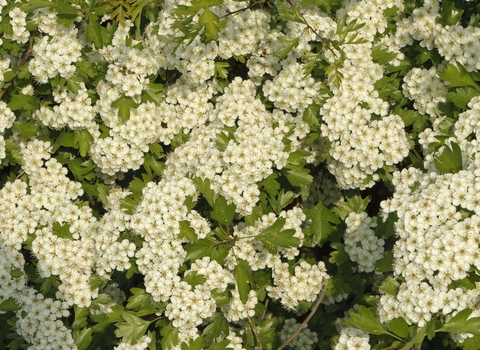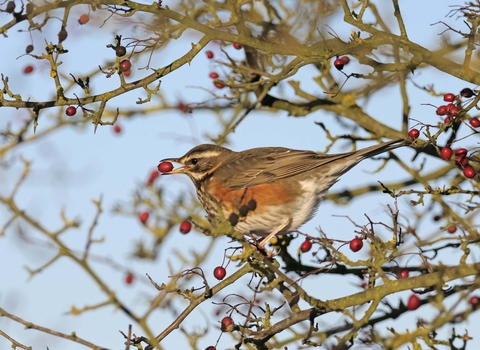
©Chris Gomersall/2020VISION

Redwing feeding on hawthorn berries ©Chris Gomersall/2020VISION
Common hawthorn
In May, our hedgerows burst into life as common hawthorn erupts with creamy-white blossom, colouring the landscape and giving this thorny shrub its other name of 'May-tree'.
Scientific name
Crataegus monogynaWhen to see
January to DecemberSpecies information
Category
Statistics
Height: up to 15mCommon.
About
In May, common hawthorn erupts with masses of creamy-white blossom, colouring our hedgerows. During the autumn and winter, red fruits known as 'haws' appear. Common hawthorn is a rich habitat for all kinds of wildlife, from hawthorn shield bugs and yellowhammers that feed on the haws, to wood mice and slow worms that shelter in the thorny thickets.How to identify
Common hawthorn has shiny leaves, divided into three to seven pairs of lobes, and five-petalled, sweet-smelling flowers. It can be distinguished from the similar Midland hawthorn by its more deeply lobed leaves and the fact that it only has a single seed in each fruit.Distribution
Widespread.Did you know?
Common hawthorn is also known as 'May thorn', 'May blossom' and 'Quick thorn' and features in many traditional May-time celebrations; for example, the flowers were used to make garlands for May Day.The Wildlife Trusts work closely with farmers and landowners to ensure that our wildlife is protected and to promote wildlife-friendly practices.
